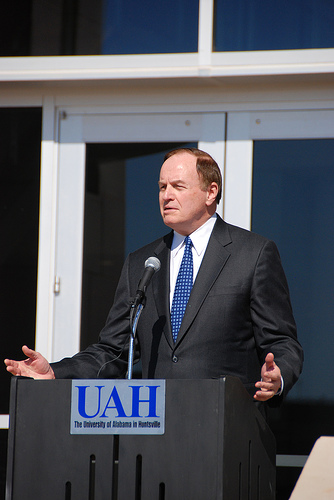Did Sen. Richard Shelby (R-Ala.), the Senate banking committee’s ranking member, try to sabotage the Senate’s financial-reform talks last week by leaking a draft proposal on consumer protection from committee chair Sen. Chris Dodd (D-Conn.)? A source with close knowledge of the Senate’s negotiations tells Mother Jones that Shelby, who’d abandoned his role as the Republican lead negotiator and was replaced by Corker, could very well have leaked the two-page proposal to news outlets to kneecap Dodd’s ongoing efforts to craft a comprehensive financial-reform bill. “Dodd gave it to Shelby and Corker, so one of them leaked it,” the source says. “Shelby could’ve leaked it to sabotage the talks.”
To be sure, the draft proposal has circulated among both Democrats and Republicans involved in financial-reform talks. Both Corker and Shelby, however, have openly opposed an independent consumer protection agency—Corker called it a “non-starter,” and Shelby said it was “folly and dangerous.” A stronger consumer-protection agency has support elsewhere: The House included an independent Consumer Financial Protection Agency in its reform bill passed in December. And even Dodd himself has previously said that “[t]here needs to be an independent agency that looks out for people when they take out a loan, open a checking account or use a credit card.” Dodd’s leaked proposal—which would create a Bureau of Financial Protection within the Treasury Department to oversee large banks and some non-bank institutions—has been viewed as a political compromise to his Republican counterparts, yet unnamed sources with knowledge of the ongoing talks have been quoted as saying that the BFP is unpalatable to Corker and Shelby. Because Dodd has tried to keep a tight lid on the progress of his negotiations, it’s unclear whether his BFP proposal is still being considered or not. The Senate banking committee is supposed to release a draft of its bill sometime this week.






